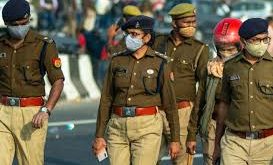Instead of paying bribe, it would be better to pay the fine and get the official receipt
India is among the countries with a large number of road accident cases, injuries and fatalities. To prevent such accidents, the government has toughened the traffic rules. Part of it is the significant increase in the penalty amount for various traffic violations.
While imposing higher fines may be useful in controlling traffic violators, it also has certain disadvantages. For example, it can create situations more favorable for bribes. In this context, let us look at what to do if traffic police demand bribes.
Stay calm, do not fight – It is important to stay calm when you are talking with the traffic police. You should not quarrel or fight, which can weaken your case and create further complications. Stay respectful and ask for the reasons why your vehicle is being held. You have the right to know the traffic rule that you have violated and can also demand evidence of the same such as speed gun reading, CCTV footage, etc. Explain to the traffic police any genuine reasons that may have prompted you to make any traffic related mistakes.
Refuse politely – In case a bribe is asked, you need to refuse it in a polite manner. Make sure to mention that you will pay the official fine and the officer can go ahead and create the challan. In most states, traffic challans can be easily paid online. It can also be paid at the respective traffic police office.
Challenge the traffic challan – There have been instances where wrong challans have been issued against users. If you believe that the traffic police have issued a wrong challan, you can submit a grievance on Parivahan website (https://echallan.parivahan.gov.in/gsticket/). If you are not satisfied with the response, you can escalate to a virtual court (https://vcourts.gov.in/virtualcourt/). These are especially meant for resolving traffic related complaints. Beyond that, you can approach the local Magistrate Court, District Court or the High Court.
Collect evidence – For any of your grievances or court cases, you will need to support your claims with proper evidence. So, make sure you start collecting evidence from the very beginning. Right from the time your vehicle was stopped and the subsequent interactions. Also note all the other information such as time and date of the incident, location, the officer’s name and badge number, etc. The more evidence you have, the stronger your case will be.
In extreme cases, you can also approach the anti-corruption bureau (ACB) in your state. Another option is to file a complaint with the state’s vigilance department or the Central Vigilance Commission (CVC) via their website (cvc.gov.in). In court cases, you may need the services of a specialist lawyer.
 Newspatrolling.com News cum Content Syndication Portal Online
Newspatrolling.com News cum Content Syndication Portal Online






